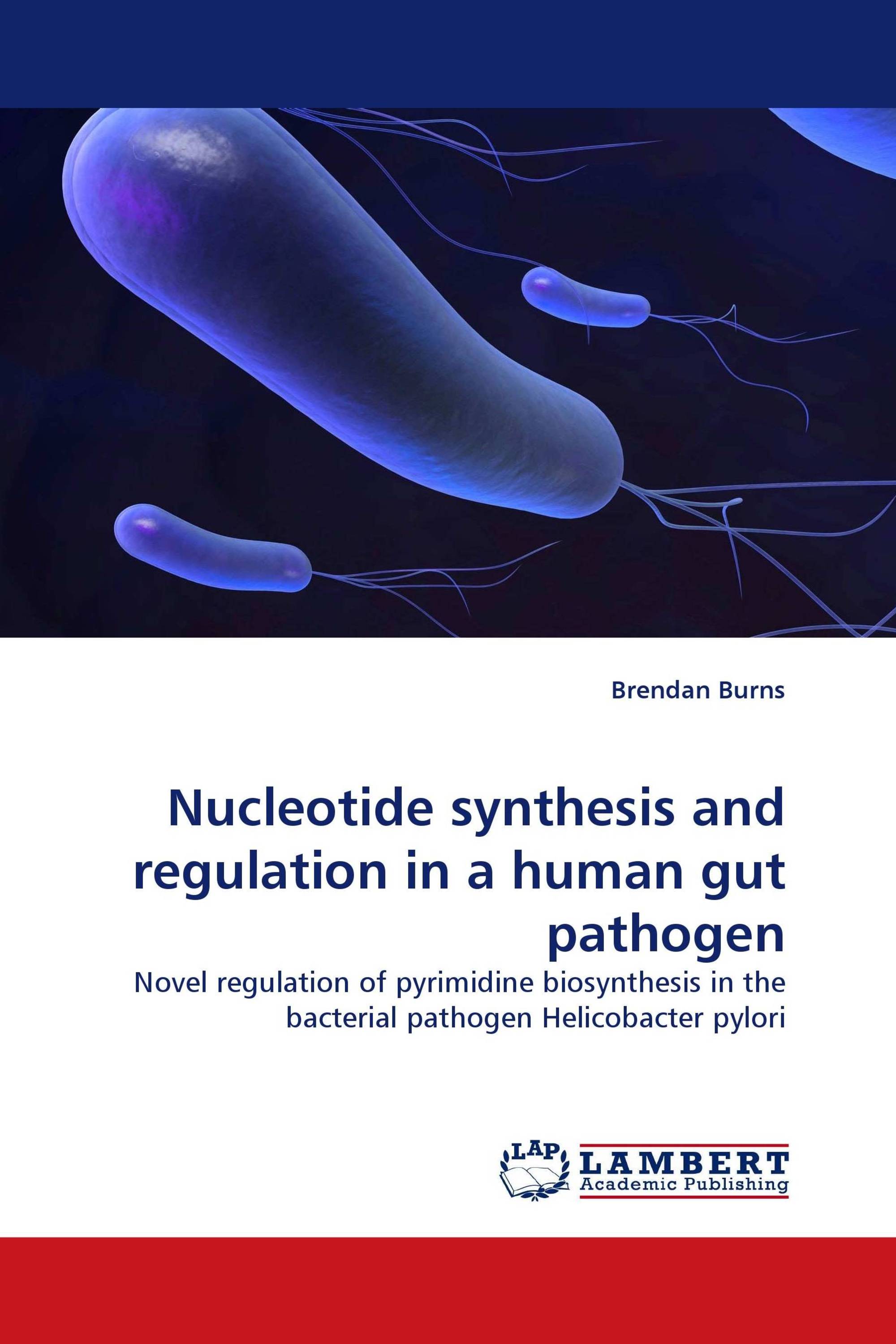Nucleotide synthesis and regulation in a human gut pathogen
Novel regulation of pyrimidine biosynthesis in the bacterial pathogen Helicobacter pylori
LAP Lambert Academic Publishing ( 2010-09-13 )
€ 79,00
Understanding the physiology of bacterial pathogens is essential to design more effective therapies. Thus the biochemical and molecular characteristics of aspartate carbamoyltransferase, the first step in pyrimidine biosynthesis, was investigated in the human pathogen Helicobacter pylori. Using enzymatic analysis procedures including NMR spectroscopy and radioactive tracer analysis, the regulatory properties of H. pylori ACTase were determined. The results indicated that the first step in this pathway of H. pylori was highly regulated. To determine whether ACTase plays an essential role in cell survival in H. pylori, an attempt was made to construct a mutant deficient in this enzyme activity. However, no mutants were isolated. These findings suggest ACTase is essential for survival of H. pylori. As ACTase appeared to be a potential therapeutic target, the effects of PALA, a potent inhibitor of this enzyme, was tested on cell viability. However, PALA had no effect on the viability of the cells. The results suggested H. pylori transformed the inhibitor into non-cytotoxic products, thus providing the bacterium with a mechanism of resistance that appears unique.
Book Details: |
|
|
ISBN-13: |
978-3-8383-2454-8 |
|
ISBN-10: |
3838324544 |
|
EAN: |
9783838324548 |
|
Book language: |
English |
|
By (author) : |
Brendan Burns |
|
Number of pages: |
228 |
|
Published on: |
2010-09-13 |
|
Category: |
Microbiology |




